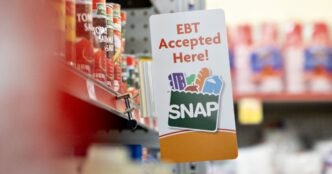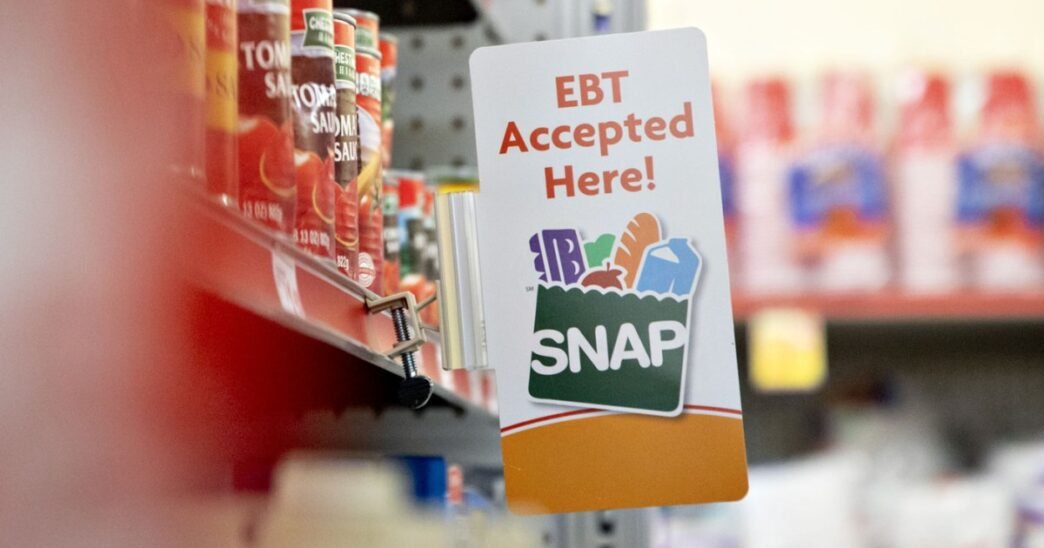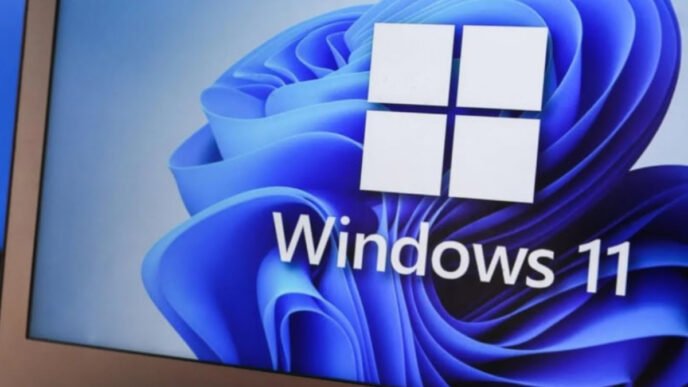A House Republican proposal to dramatically reduce federal funding to the nation’s largest anti-hunger program would have a disastrous effect on low-income families, nutrition advocates say.
Monday night’s proposal from GOP members of the House Agriculture Committee would cut more than $290 billion from the Supplemental Nutrition Assistance Program, which helps over 42 million people nationwide purchase fresh produce and other groceries, according to the Agriculture Department. Eligibility for the public-benefits program, which used to be referred to as food stamps, is based on participants’ income and household size, among other factors.
SNAP is federally funded and state-administered. The reforms would “ensure SNAP works the way Congress intended it to, by reinforcing work, rooting out waste,” and by requiring states to shoulder a share of the costs, according to a statement from legislators.
But advocates fear the move could backfire, which would be particularly detrimental at a time when the cost of groceries is so high.
“Requiring states even to just pay a modest portion would radically, radically change the program’s funding structure,” said Jamie Bussel, senior program officer of strategic portfolios at the health equity-focused philanthropy the Robert Wood Johnson Foundation. “What’s likely to happen is a lot of people are going to lose their benefits as a consequence as states think about now having to pony up the resources to cover the shortfall.”
“SNAP is life-changing for so many people,” Bussel added. “This is completely unconscionable that, essentially, we’re making it even harder for people to afford healthy food at a time when so many are struggling to make ends meet.”
The drastic reduction to SNAP was proposed in the House Agriculture Committee Republican leadership’s portion of the budget reconciliation bill, a broader effort to extend Trump administration tax breaks that disproportionately benefit wealthy people. The committee scheduled a markup on the bill text for late Tuesday and will decide whether to advance it after it finalizes the wording.
In addition to cutting funds, the proposal includes stricter work requirements for SNAP participants. Currently, adults 54 and under who don’t have children can receive SNAP benefits for only three months over a three-year period unless they show that they are complying with a 20-hour-a-week work requirement or unless they qualify for an exemption, such as having a disability. The bill aims to expand those rules to older adults ages 55 to 64, among other changes.
In a post on X on Monday night, the House Agriculture Committee announced its budget reconciliation text “restores SNAP to its original intent—promoting work, not welfare—while saving taxpayer dollars and investing in American agriculture.”
But anti-hunger advocates said it would result in higher rates of food insecurity, including in households whose parents can’t document enough work hours.
“A vote for this bill will result in more kids facing hunger — in every state, in every community, in every zip code,” Jason Gromley, senior director for the nonprofit Share Our Strength and the group’s No Kid Hungry campaign, said in a statement.
Research has shown that SNAP work requirements don’t increase employment but decrease program participation. Sen. Amy Klobuchar, D-Minn., slammed the proposed text as “shameful.”
“This means more seniors, veterans, people with disabilities and children will go to bed hungry. It means farmers, who are already operating on razor-thin margins, will see billions in lost revenue,” she said in a statement. “It will mean job losses and lost wages for everyone who is a part of the food system — from truck drivers to local grocers.”
Republicans said in their statement that the cuts were necess because the program’s cost has grown to $110 billion annually, up from $60 billion in 2019.
Ty Jones Cox, vice president for food assistance at the nonprofit research institute Center on Budget and Policy Priorities, pushed back, arguing the cost of SNAP went up during that time in part because of a modest cost-of-living increase that allotted participants an average of $6.20 a person per day in the 2024 fiscal year.
“It’s almost like they are trying to cripple SNAP and cripple the ability for people to purchase food at such an important time, as we think about how high grocery prices have gotten,” she said. “It is mind-boggling to me.”













